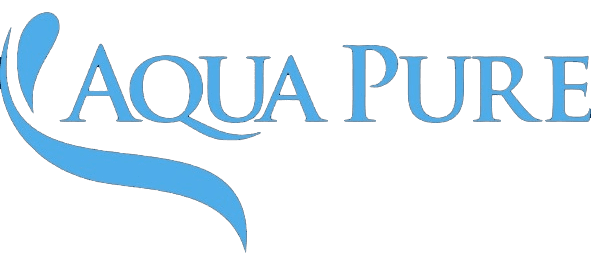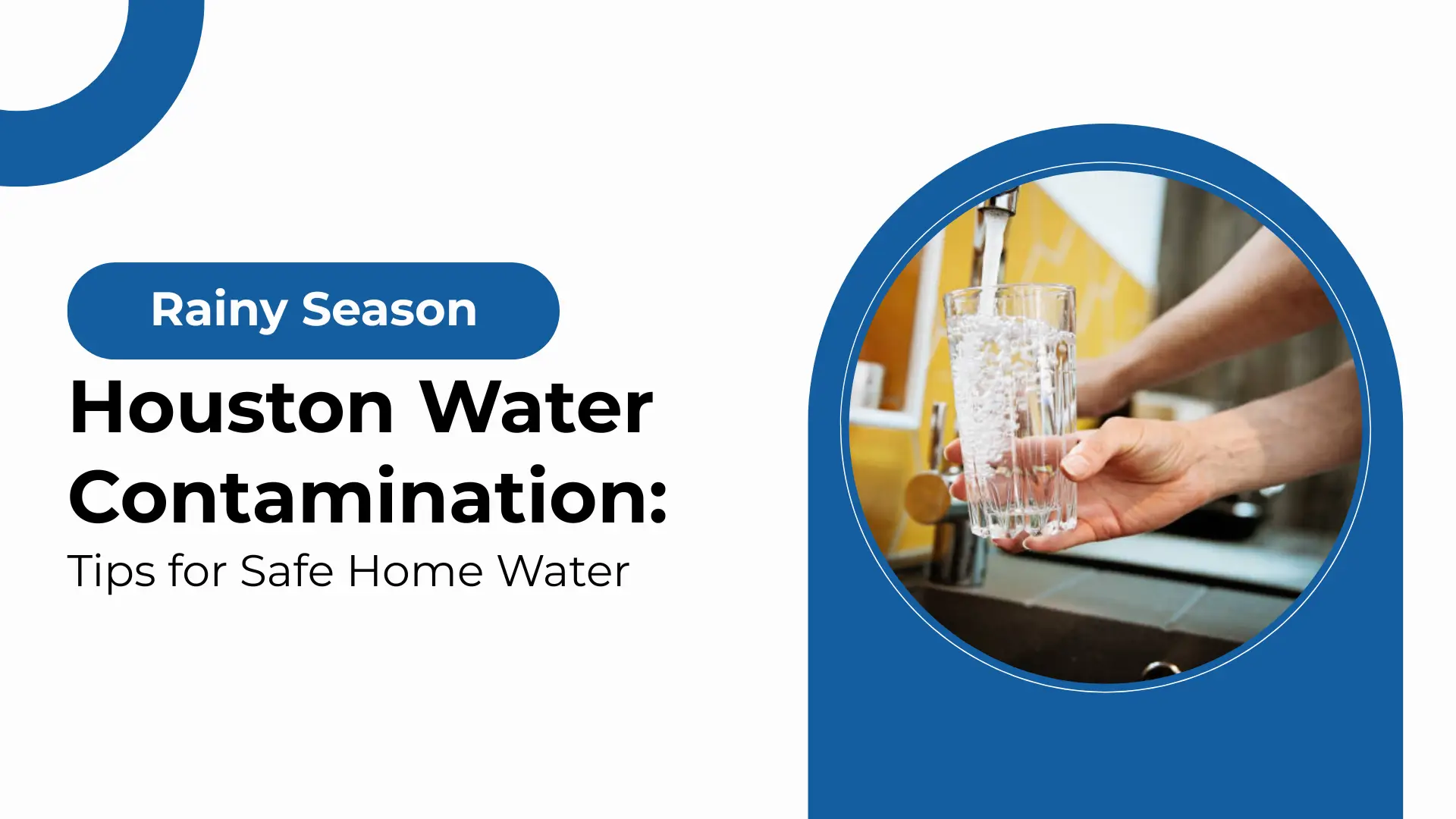When the rainy season arrives in Houston and coastal towns like Seabrook many families worry about flooding traffic and roof leaks. But one problem that often gets overlooked is water contamination. Heavy rainfall can overwhelm treatment plants stir up sediment and even allow contaminants into your tap water.
For Seabrook residents whose homes sit close to the Gulf and bayou systems these risks are even more concerning. Your home’s water may look clear but it could still contain contaminants like hard water minerals chlorine PFAS and bacteria—all of which can affect your family’s health and your appliances’ lifespan.
This guide will break down what’s really in local water how rain makes the problem worse and most importantly what you can do about it.
Why Rainy Season Increases Water Contamination
Houston’s water system relies on both surface water and groundwater. When heavy rain hits runoff can wash pesticides heavy metals and industrial byproducts into surface reservoirs. Flooding also puts stress on treatment facilities which may rely on extra chlorine to keep bacteria under control.
For Seabrook homes located near Galveston Bay this means extra risks:
- Sediment and silt stirred up by flooding can enter supply lines.
- Sewage overflows during heavy storms increase microbial risks.
- Old pipelines in certain neighborhoods allow corrosion metals like lead and copper to seep in.
Even if the city keeps water within EPA “safe limits” families often notice cloudy tap water chlorine smells or hard water buildup right after major storms.
Common Contaminants in Seabrook Water
1. Hard Water Minerals (Calcium & Magnesium)
Houston and surrounding areas are known for hard water. While not dangerous in small amounts hard water causes scale buildup in water heaters dishwashers and plumbing. For residents this means:
- Shortened appliance life
- Higher energy bills (due to scale in heaters)
- Dry skin and dull hair
2. Chlorine and Chloramines
Used to disinfect municipal water chlorine is necessary but it leaves behind a harsh taste and smell. Long-term exposure can also dry skin and aggravate conditions like eczema.
3. PFAS (Forever Chemicals)
Recent testing across the U.S. has shown PFAS in many water systems. These chemicals are linked to hormonal disruption and certain cancers. Rainy season runoff increases the likelihood of PFAS entering water sources.
4. Sediment and Rust
Seabrook’s proximity to salty air accelerates pipe corrosion. When storms disturb the water supply rust and sediment can flow straight into homes leaving brownish stains in sinks and tubs.
5. Bacteria and Microbial Contaminants
Flooding events overwhelm sewer systems leading to boil-water notices in Houston-area communities. Even after notices are lifted residual bacteria may linger in home plumbing.
How Contaminants Affect Your Health and Home
- Health risks: Stomach issues skin irritation long-term exposure to PFAS or lead linked to chronic disease.
- Home damage: Scale buildup clogs pipes increases utility costs and ruins appliances.
- Daily comfort: Chlorine odor metallic tastes and cloudy water lower confidence in your drinking supply.
How to Know if Your Water is Safe
The first step is testing your water at home. You don’t need to rely only on municipal reports because those don’t account for what happens in your pipes.
Simple Checks You Can Do:
- Look for cloudy or rusty water after storms.
- Smell for chlorine or rotten egg odors.
- Watch for soap not lathering well (a sign of hardness).
- Notice any recurring skin irritation or dry hair.
Professional Water Testing
For accurate results schedule a free water test with Aquapure LLC. Certified technicians come to your home check for chlorine hardness PFAS and more and recommend customized solutions.
Solutions for Cleaner Safer Water
Different homes in Seabrook need different fixes depending on their water problems. Here are some trusted options:
Whole-House Filtration Systems
- Remove chlorine rust sediment and organic matter
- Improve taste and smell
- Protect appliances and plumbing
Reverse Osmosis Systems
- Best for drinking water
- Filters PFAS lead arsenic and many dissolved solids
- Provides bottled-water quality straight from the tap
Water Softeners
- Eliminate hard water minerals
- Prevent scale buildup in appliances
- Leave skin and hair feeling softer
UV Purification Systems
- Neutralize bacteria and viruses that can enter after flooding
- Ideal for homes concerned about boil-water notices
Why Choose Aquapure for Seabrook Homes
Local water is unique—what works for Dallas won’t necessarily work here. That’s why Aquapure LLC offers customized solutions for every home. Here’s what sets them apart:
- Free installation and support – Certified technicians handle everything from setup to maintenance so you don’t have to worry.
- Easy financing – Affordable monthly plans available with no money upfront.
- $0 down payment Buy Now – Pay Later – Protect your home now and pay over time.
- Lifetime warranty – Industry-leading coverage so you never stress about expensive repairs.
- Texas owned family operated – Built strong for Texas homes with service you can trust.
- 10+ years of trust – Serving Houston families for more than a decade.
- Customized solutions – Whole-home filtration softeners or combination systems designed just for your water needs.
👉 Ready to find out what’s in your water? Request a free water test or quote today.
Practical Tips for Rainy Season Water Safety
- Keep an emergency water supply – Store at least 3 days’ worth of bottled water during storm season.
- Flush taps after boil-water notices – Let cold water run for a few minutes to clear pipes.
- Check your water heater – Drain once a year to remove sediment buildup.
- Maintain filters – Replace cartridges and salt in softeners as recommended.
- Get annual testing – Local water changes with weather and infrastructure updates so regular testing is key.
Frequently Asked Questions (FAQ)
Q: Does Seabrook have hard water?
Yes Seabrook and greater Houston are known for hard water. Most families notice scale on faucets or cloudy dishwasher glassware. A water softener can eliminate this problem.
Q: Why does my tap water smell like chlorine after storms?
The city often increases chlorine to control bacteria during heavy rain. While effective for disinfection it can leave behind an unpleasant odor. A whole-house filter removes that taste and smell.
Q: Are PFAS really a concern in Houston?
Yes PFAS are a growing nationwide concern. Even if levels are “legal” many families prefer to reduce exposure. Reverse osmosis filtration is the most reliable option for removing PFAS.
Q: What if I rent my home?
Aquapure offers point-of-use systems that fit under the sink—perfect for renters. No major plumbing changes required.
Q: How do I know which system I need?
Every home is different. That’s why Aquapure provides a free in-home water test to match the right system to your needs.
Final Thoughts
Rainy season brings welcome relief from Houston’s summer heat but it also increases the risk of water contamination especially for Seabrook families near the coast. Hard water minerals chlorine PFAS and bacteria don’t just affect taste and smell—they impact your health and home comfort too.
By testing your water and investing in the right filtration or softening system you can protect your family year-round. And with Aquapure LLC’s free installation easy financing and lifetime warranty you can enjoy safe clean water without stress.
👉 Take the first step today: Schedule your free water test with Aquapure.



